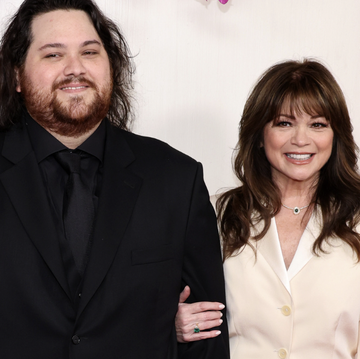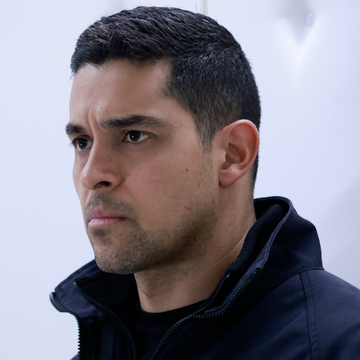Estrangement looks different in every family. For some, there’s a clear before and after when all contact ends. For others, one person might distance themselves from the other without ever explicitly stating that they’re doing it or why. But one thing the majority of estrangement cases have in common, according to Joshua Coleman, a San Francisco-based family psychologist and co-chair to the Council on Contemporary Families who serves as a leading expert on paternal estrangement, is that the estrangement is usually initiated by the adult children. “These days it’s typically the adult child who is doing it, though not always,” he confirms.
Estrangement is usually initiated by adult children.
He partly attributes that to the fact that the “old institutional forces that kept families together—religion, neighborhood, economic factors — have become less of an organizing principle in our society.” Instead, as we all grow increasingly individualistic, more young people are beginning to view their relationships — even familial ones — “through the circuitry of whether a relationship is good or bad for them: Does it help me feel better or worse about myself? Is it a net gain to my life or a net loss to my life?” Coleman explains.
The thought of even viewing a family relationship as voluntary may sound outrageous to older generations (though they too initiate estrangements), but more and more people today are realizing they don’t have to be tied to anyone who makes them feel unhealthy. “Quite frankly, nothing compels adult children to have a relationship with the parent beyond the fact that the adult child wants it,” says Coleman. Which means there’s an asymmetry to the counseling sessions he does with estranged family members. “It’s not like marriage therapy where both people have an equal say and right to how their relationship is going to be,” he explains. “It’s more like divorce counseling because one person is really willing to leave and the other person really wants the relationship. The person who’s willing to leave is going to have more power, so that has to be factored into the work.”
In most cases he sees, Coleman says the pressure is largely on the parents to change. “From the adult child’s perspective, they would say they’re [choosing estrangement] because the parent is not respectful of them, of their requests, of their boundaries, of their needs, of their parenting, or of the person that they’re married to,” he says. “So the adult child has their own rationale. But it’s rarely viewed as a source of self-esteem or growth or personal development for the parent the way that it is for the adult child.”
Which means, should both parties be open to a reconciliation, there are two different approaches.
How to reconnect when you're the parent
“To the parent, I spend a lot of time talking about the importance of making amends, of taking responsibility, of not defending yourself, of not trying to persuade them that you are a better parent than they are alleging you to be. To find the kernel of truth in what they are saying if you can’t identify with the larger points they have. To understand that your kid, even if it seems crazy to you, felt like an estrangement was the healthiest thing to do.”
This isn’t to say all parents are in the wrong, Coleman clarifies. “A lot of parents today did a much better job with their kids than anybody ever did with them,” he says. “But that still doesn’t change the fact that your kid has these complaints about you or your parenting, or that he or she needs you to take responsibility and address these things.”
How to reconnect when you're the child
Adult children also have their share of the work to do if they want to reconcile. “I think it’s helpful for [the adult children] to understand that the standards of parenting have evolved over the last three decades. In some ways it’s not completely fair to hold your parents to different standards of parenting that weren’t in existence when they were raising you.”
“If your parent says they did the best they could, however inept that defense is, there’s likely some truth to it,” he continues. “Most parents really did do the best that they could. That doesn’t mean that they deserve a pass. And that’s why I spend so much time telling [parents] that they have to be willing to change. But from the adult child’s perspective, if their parents are really trying, and they’re willing to take responsibility and make amends, it may be worth it to give them a chance.”
How to initiate contact
When it comes to initiating contact, Coleman recommends that whichever party is reaching out first does so by written letter—yes, we’re talking about good old fashioned snail mail. “I generally recommend writing an amends letter because they can do it when they are calm and they don’t have to look at the other person’s reaction, or worry about getting defensive in front of them,” he says. “And it gives the other person time to read things over and respond.”
In many cases, estranged families choose to seek professional help to navigate the first in-person or over-the-phone conversation following an estrangement, something Coleman recommends. After meeting or talking with both family members individually, he will usually lead them through several group sessions to discuss each person’s concerns. Here again, it’s about parents taking responsibility and adult children showing sympathy. Coleman says it’s especially important to discuss what each person thinks a healthy relationship would look like going forward. To ensure everyone is on the same page, he’ll prompt his patients with questions like "What does that mean to be more respectful of your boundaries? What would a 'good' relationship look like? What would a 'not good' relationship look like? You want to be clear about all that.”
If the sessions go well, and the family members eventually decide to spend time together in person outside of his office, Coleman recommends a follow-up session “to process what happened, what went well, and what was revealed.”
When the other party doesn't want to reconcile
Of course, not every estrangement can be solved. Kristina Scharp, an assistant professor of Communication Studies and Director of the Family Communication and Relationships Lab at the University of Washington who specializes in family estrangement, has interviewed dozens of estranged adults and their immediate family members. Over the course of her research, Scharp admits it’s rare that she meets an estranged adult child who is actively seeking a reconciliation.
“With family member marginalization, when someone feels like they’re the black sheep or feels different from their family based on values or other differences, oftentimes they do really want to get back with their family,” she says. “But with the people I talk to, a lot of times they say it was hard enough for me to get away the first time and nothing has changed.”
That isn’t to say, however, that the line of communication is completely closed when a family member first starts distancing themselves. As many experts point out, estrangement is often cyclical. “Estrangement typically happens after years and years of an on-again, off-again relationship,” says Scharp. “So a lot of times people are like, ‘I tried to reconcile and it didn’t work.’ Sometimes people can make a clean break, but more often I saw this on-again, off-again relationship. Usually people who move very far away are more successful.”
And, she adds, sometimes not reconciling is actually the healthiest thing to do. “The good news is that some people are able to permanently leave these abusive relationships,” says Scharp. “And oftentimes they create a voluntary system of kin who serve as the family that they chose. If you find the people who support you and take care of you and are there for you, it doesn’t matter if they are related to us by blood or not.”













